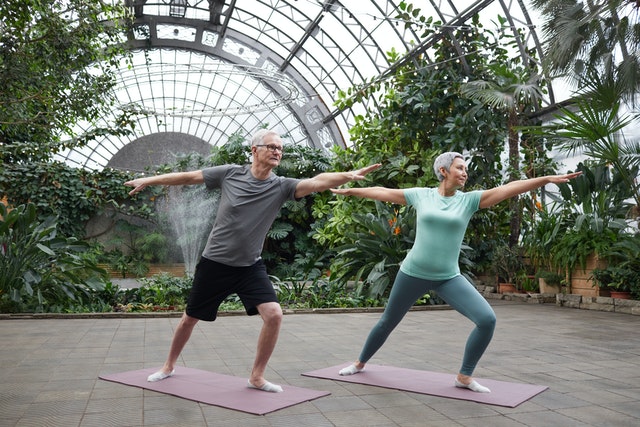Menopause – Signs, Symptoms and Tips for Each Stage

Menopause.
The dreaded word.
But why is it so dreaded?
Aging is a beautiful thing, and taking ownership of our bodies and the way they change can be one of the most empowering things one can do.
Usually at some point in your 40’s you begin to transition from what we call our “reproductive years” to the beginning stages of “menopause.” The Big M. The Change. La Menopausia.
Your cycle lengths will start to change. Sometimes you may notice you start to skip periods. Hot flashes may start to creep up. And you may notice sleep disturbances. There are fluctuations in estrogen production (namely decreased) that can occur during this time accounting for these changes.
The period during which these initial symptoms begin is a great time to start researching and understanding the changes that are occurring in your body. This time is often referred to as peri-menopause. And while you are starting to notice changes, remember that during this time (while unlikely) you CAN still get pregnant.
You should understand from the start of these changes it can take years (sometimes over 4!) to fully transition into menopause, which is when your periods have stopped for a full year.
Below are a few things to keep in mind during the peri-menopause phase:
1. Stay lubricated: One of the most common and earliest symptoms of menopause is related to changes with vaginal dryness. This is nothing to be ashamed of, nor should it be ignored. Utilizing a good lubricant (hello ASTROGLIDE!) can be a game-changer during this period.
2. Sleep is key: Utilizing healthy sleep habits (turning off screens 2-3 hours before, no large meals prior to sleep, limiting alcohol intake) helps to ensure that any changes in sleep you may start to notice are mitigated. In addition, some find it helpful to add a small dose of melatonin (a natural sleep aid) versus adding a night-time meditation to calm the mind and stimulate sleep.
3. Fight mood changes: With exercise! Exercise releases natural endorphins which are our body’s way of stimulating the neurotransmitters needed to fight mood changes, anxiety, and depression. While some may feel sluggish during this time, this is the most important time to get started or keep going by hitting the gym! Those weights matter!

Once your body transitions into full menopause (again, where your ovaries stop producing estrogen and progesterone and you are sans period for one entire year or 12 months) you may start to notice further changes. For example, the vaginal dryness you’ve begun to experience can now turn into painful sex. The hot flashes you experience can turn into constant excessive sweating that can be life-altering. The mood changes can become more intense and overwhelming.
With a longer life expectancy, women can spend almost 40% of their lives in menopause. Therefore, discussion surrounding menopause and the changes that accompany it is critical. When menopause is thought to be a mystery, it leaves us unprepared in many ways–physically, mentally, and emotionally.
Another aspect of menopause that people don’t realize is that it affects each of our communities differently. Research suggests that African American and Latina women experience more hot flashes and reach menopause 2 years earlier than their white counterparts. This means without knowledge or intervention they can suffer longer as their symptoms begin earlier and can subsequently impact their wellbeing longer! A startling fact. But a true one.
Also, did you know that nearly one in two women have never discussed menopause with their healthcare provider? I want to be able to provide you with some education and helpful tips…today!
Starting with:
1. Lifestyle changes: Believe it or not, a healthy diet and regular exercise program can help manage symptoms of menopause. Dressing in layers for hot flashes is often helpful to help with discomfort. In addition, avoiding foods that can often trigger these episodes such as caffeine or spicy foods. Eating a low-fat, low-salt, low-sugar, and high-fiber diet can be incredibly helpful in mitigating symptoms. Exercising and weight training are key to preventing further loss of bone or osteoporosis during significant hormonal changes.
2. Medication: Many women are hesitant but there are prescription medications that can help during menopause. All involve an in-depth discussion with your doctor regarding the right medication and dosage for YOU…depending on your symptoms and exam. However, certain examples include hormone replacement therapy which can be helpful for hot flashes and night sweats, it is also particularly important to help prevent osteoporosis. For specific symptoms like vaginal dryness and painful sex, topical hormones (often a combination of both estradiol and testosterone) and lubricants are helpful in making sex more comfortable and pleasurable. In addition, things like arousal and desire for sex can take a hit during menopause. Incorporating new sexual positions can be particularly helpful (and exciting) with modified missionary, cowgirl and reverse cowgirl, and side-lying being some of the most popular positions. Changes in arousal and desire can be commonplace during this time. Understanding the basis upon which these occur is key to addressing the root cause, which more often than not can be multifactorial by nature. For example, is it simply hormonal changes causing dryness and pain which leads to a decrease in desire OR a component of alterations in things like dopamine and desire with changes in hormones? Seeing a specialist can be key to getting answers to questions like these.
3. Don’t sleep on nontraditional methods: Things like acupuncture, yoga, and maintaining vaginal hygiene can be PARAMOUNT. Small changes have long-lasting effects.

Acupuncture, in particular, has been applied to a number of acute and chronic medical conditions such as pain, male and female sexual dysfunction, pregnancy, and more. Acupuncture has also been revered for its role in pain management, particularly in the field of chronic pelvic pain. And while the mechanism by which acupuncture affects pain or hormonal changes has not been accurately elucidated, many women find this form of therapy to be particularly helpful. Traditionally, the thought was that qi, the energy of life, was manipulated with the use of acupuncture. There are approximately 400 known acupuncture points, or acupoints, which have been identified on the body. The pathways between the acupoints are known as meridians and the use of acupuncture is to help restore the flow of qi through these meridians.
Yoga has many health and wellness benefits, including the ability to decrease pain and improve quality of life for individuals who suffer from pelvic pain. There are many different yoga methods and traditions, and most yoga practices include techniques for breathing, body positioning, and mindfulness to promote wellbeing. Technology allows individuals to use apps or websites to guide their yoga practice at home or at live, instructed classes. New technology makes yoga widely accessible as a means of self-management for menopause symptoms in conjunction with other treatments under the advisory of a healthcare provider.
Yoga commonly teaches deep breathing techniques which are a helpful means to learn to relax and better coordinate the muscles of the pelvic floor. The ability to voluntarily relax your pelvic floor muscles helps reduce pelvic pain by maintaining mobility and proper circulation of the muscles. The means in which breathwork helps is both physiological and mechanical and extremely helpful for menopausal symptoms such as hot flashes, heart rate changes, and painful sex.
Maintaining proper vulvar hygiene is important both for those who are and aren’t experiencing menopause. Mainstream media tends to focus on skincare and frown line prevention, but why don’t we give this same attention to pelvic and vaginal health? Let’s start now!
Here are a few tips below:
- Wear non-constricting, cotton underwear during the day
- Avoid scented soaps, detergents, body washes, bath gels and bubble bath
- Avoid pantyhose and tight pants
- Use mild, hypo-allergenic soap for bathing and water-only for cleansing the vulva and vagina
- Avoid douching, over-the-counter vaginal wipes, deodorants and other commercial products
- When necessary, use unscented pads and tampons
- Use water-based, unscented, hypoallergenic lubricant for sex play
- Avoid the use of fabric softener and dryer sheet on underwear
- Apply ice or cold packs to the vulva for 10-15 mins up to 6 x per day before and or after sexual activity. To decrease deeper vaginal irritation, fill a glove with water and freeze it, then cut off only the finger portion and place it in the vagina (sounds crazy but works especially on those days you may be hopeful for anything to work!)
- Warm baths twice a day with either Epsom salt or Aveeno oatmeal helps relieve irritation and itching

This list and all of the above tips may be extensive, but my goal is for you to see that menopause doesn’t have to be scary. By understanding the changes that are occurring in our bodies we can empower ourselves to accept, allow, and even flourish during this new stage of life. And Heraclitus, a famous Greek philosopher, says, “the only thing constant is change” so let’s embrace it–in our bodies, our minds, and our souls. Talk to your healthcare provider if you’re experiencing symptoms of peri-menopause and menopause –TODAY.
